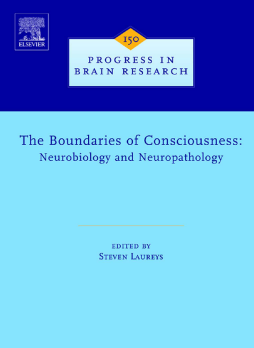
Additional Information
Book Details
Abstract
Consciousness is one of the most significant scientific problems today. Renewed interest in the nature of consciousness - a phenomenon long considered not to be scientifically explorable, as well as increasingly widespread availability of multimodal functional brain imaging techniques (EEG, ERP, MEG, fMRI and PET), now offer the possibility of detailed, integrated exploration of the neural, behavioral, and computational correlates of consciousness. The present volume aims to confront the latest theoretical insights in the scientific study of human consciousness with the most recent behavioral, neuroimaging, electrophysiological, pharmacological and neuropathological data on brain function in altered states of consciousness such as: brain death, coma, vegetative state, minimally conscious state, locked-in syndrome, dementia, epilepsy, schizophrenia, hysteria, general anesthesia, sleep, hypnosis, and hallucinations. The interest of this is threefold. First, patients with altered states of consciousness continue to represent a major clinical problem in terms of clinical assessment of consciousness and daily management. Second, the exploration of brain function in altered states of consciousness represents a unique lesional approach to the scientific study of consciousness and adds to the worldwide effort to identify the "neural correlate of consciousness". Third, new scientific insights in this field have major ethical and social implications regarding our care for these patients.
"Laureys and contributors have taken up the task to link biocognitive theories, functional neuroimaging, and clinial descriptions of known comatose states, and the result is impressive. The authors have mined this complex and disputatious field and its entire consolidated work is very readable."
--FOREWORD by Eelco F.M. Wijdicks, Mayo Clinic College of Medicine, Rochester, MN, U.S.A.
"The distinguished panel of philosophers, modelers, psychologists, physicians, and neuroscientists assembled here provides an accessible, yet in-depth perspective on many of those fields of research. Rarely has such a diversity of points of view been made available in a single volume. Browsing through them provides an exciting window into the forefront of consciousness research, as well as the associated philosophical, ethical and clinical issues."
--FOREWORD by Stanislas Dehaene, President-elect of the Association for the Scientific Study of Consciousness
